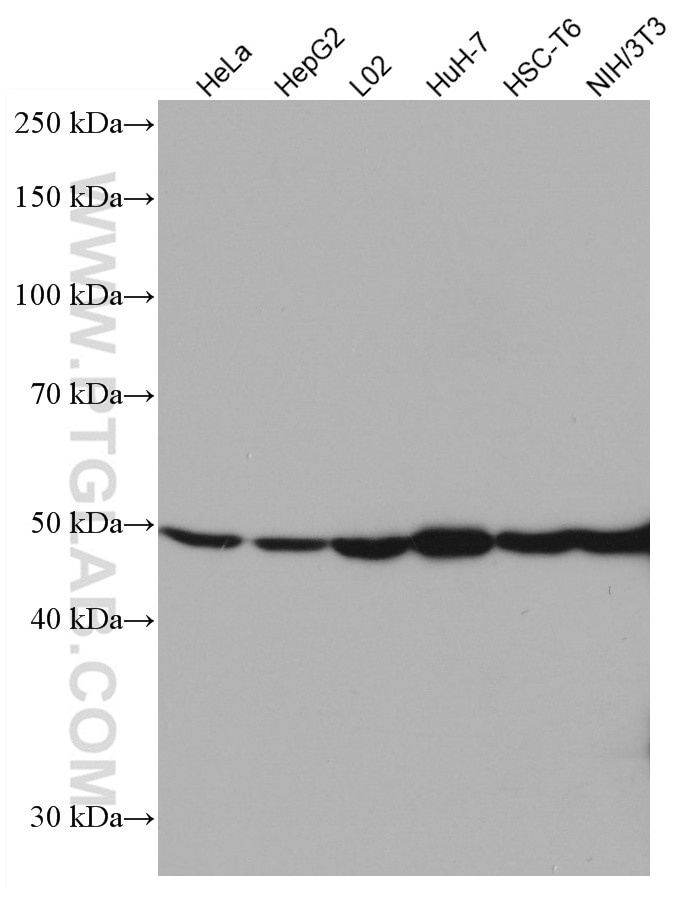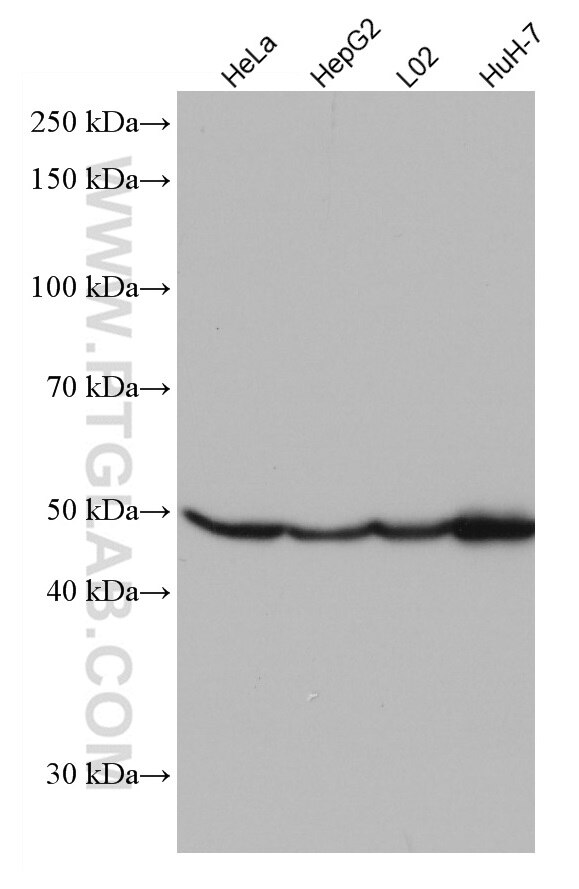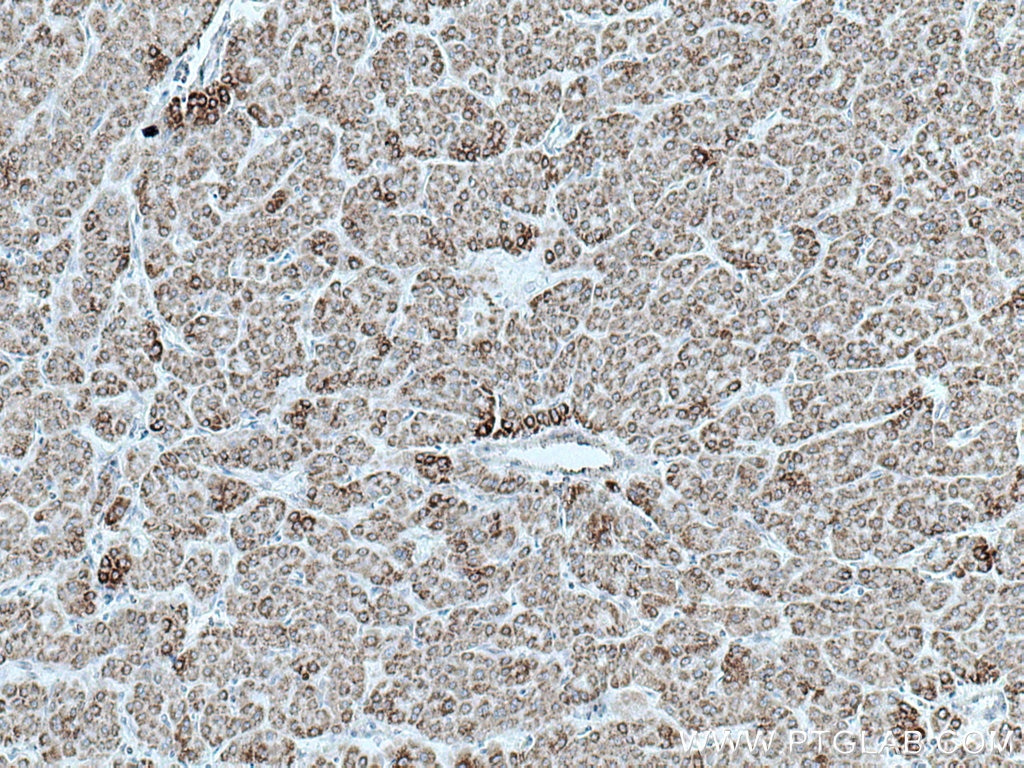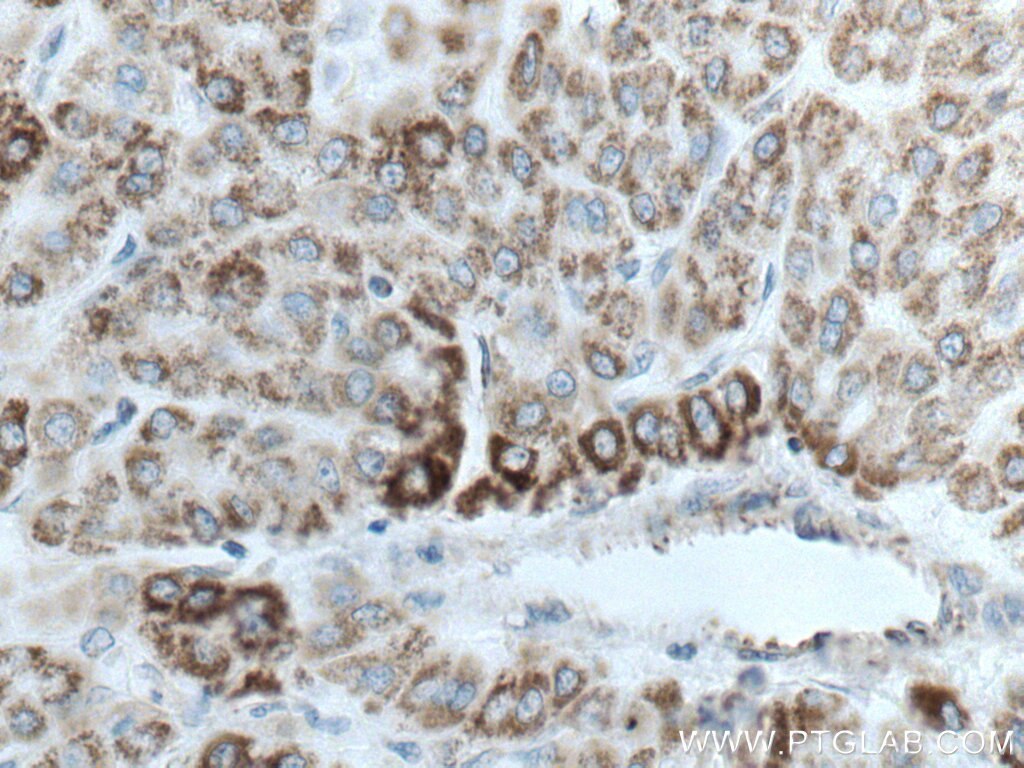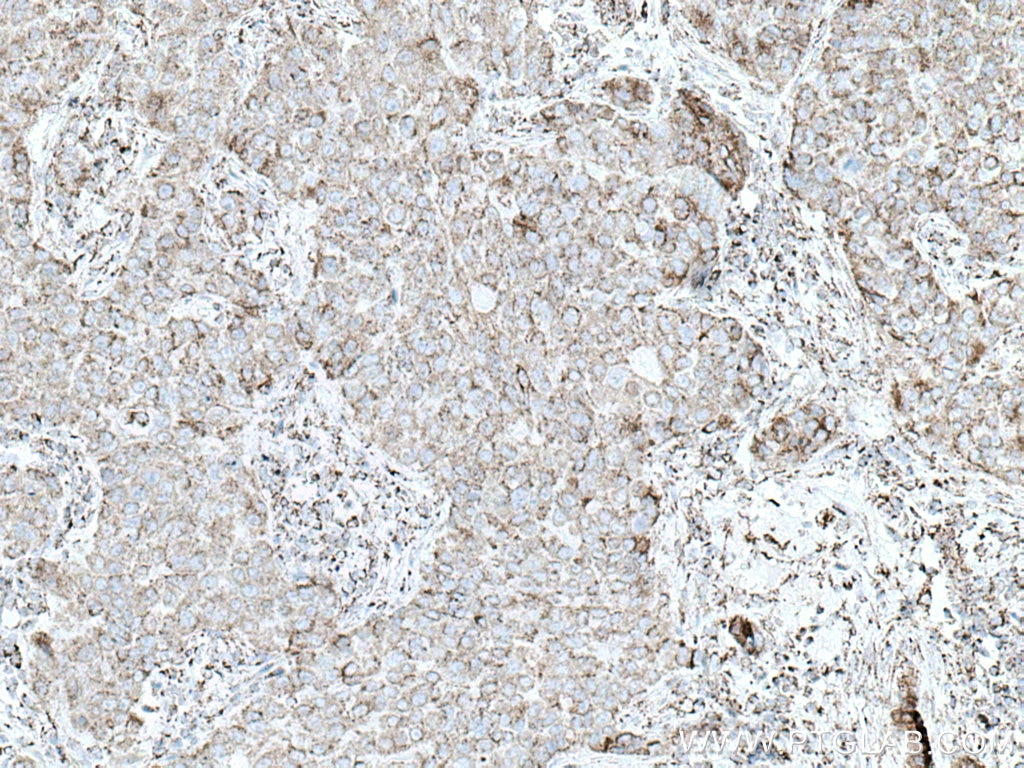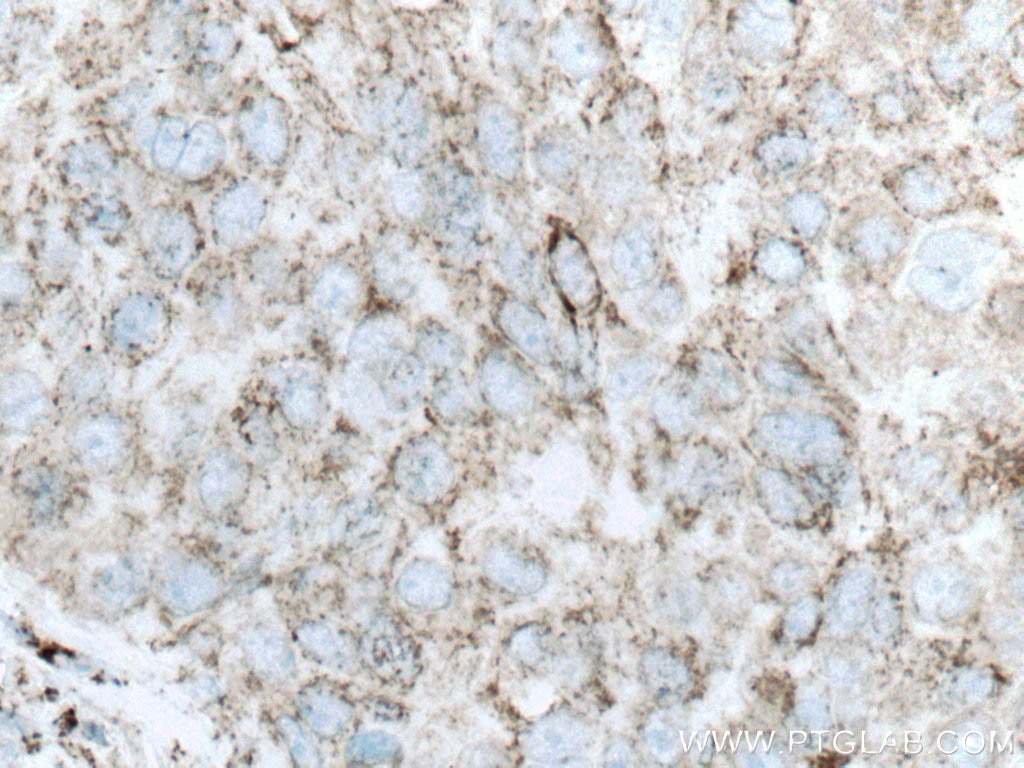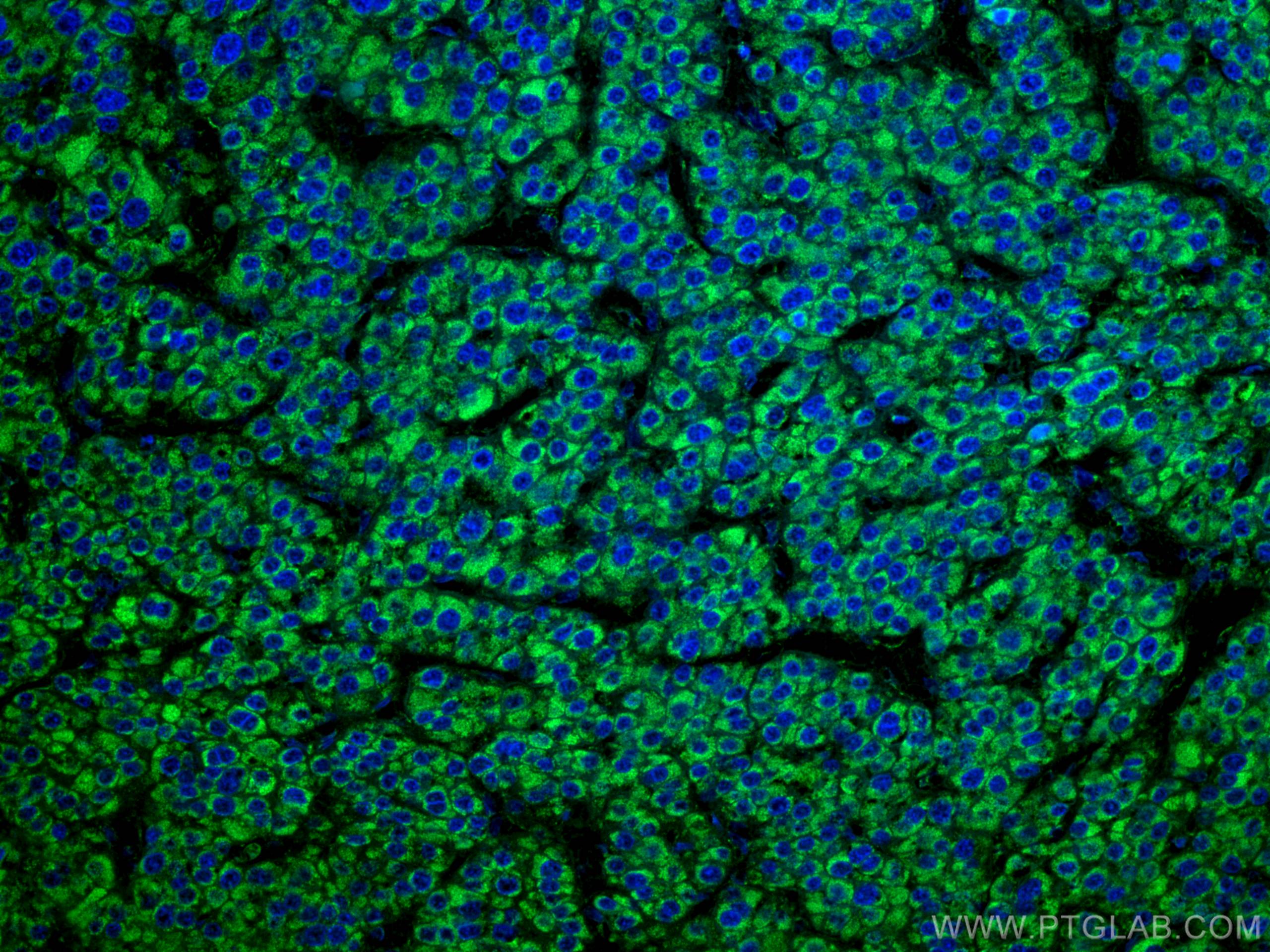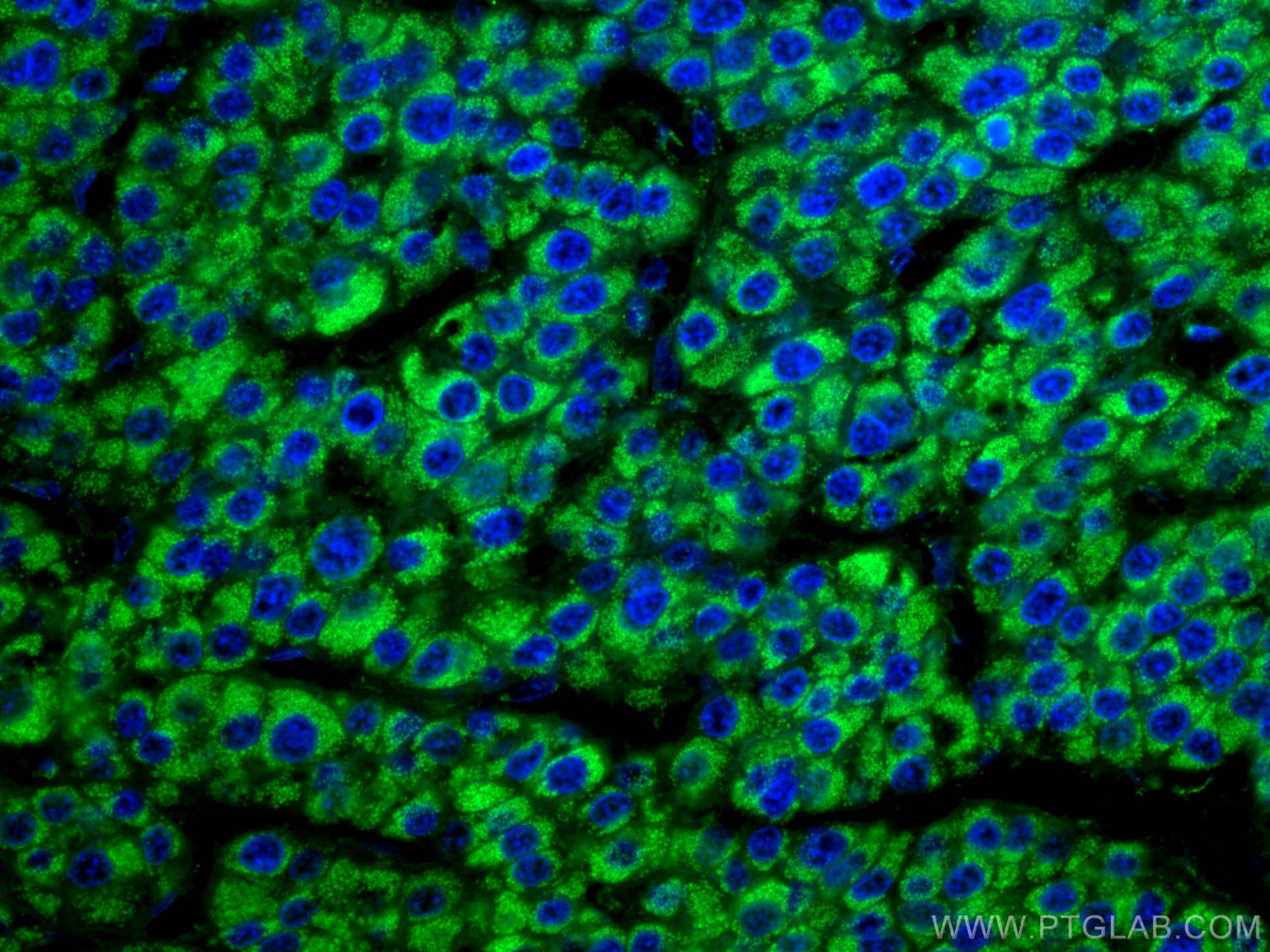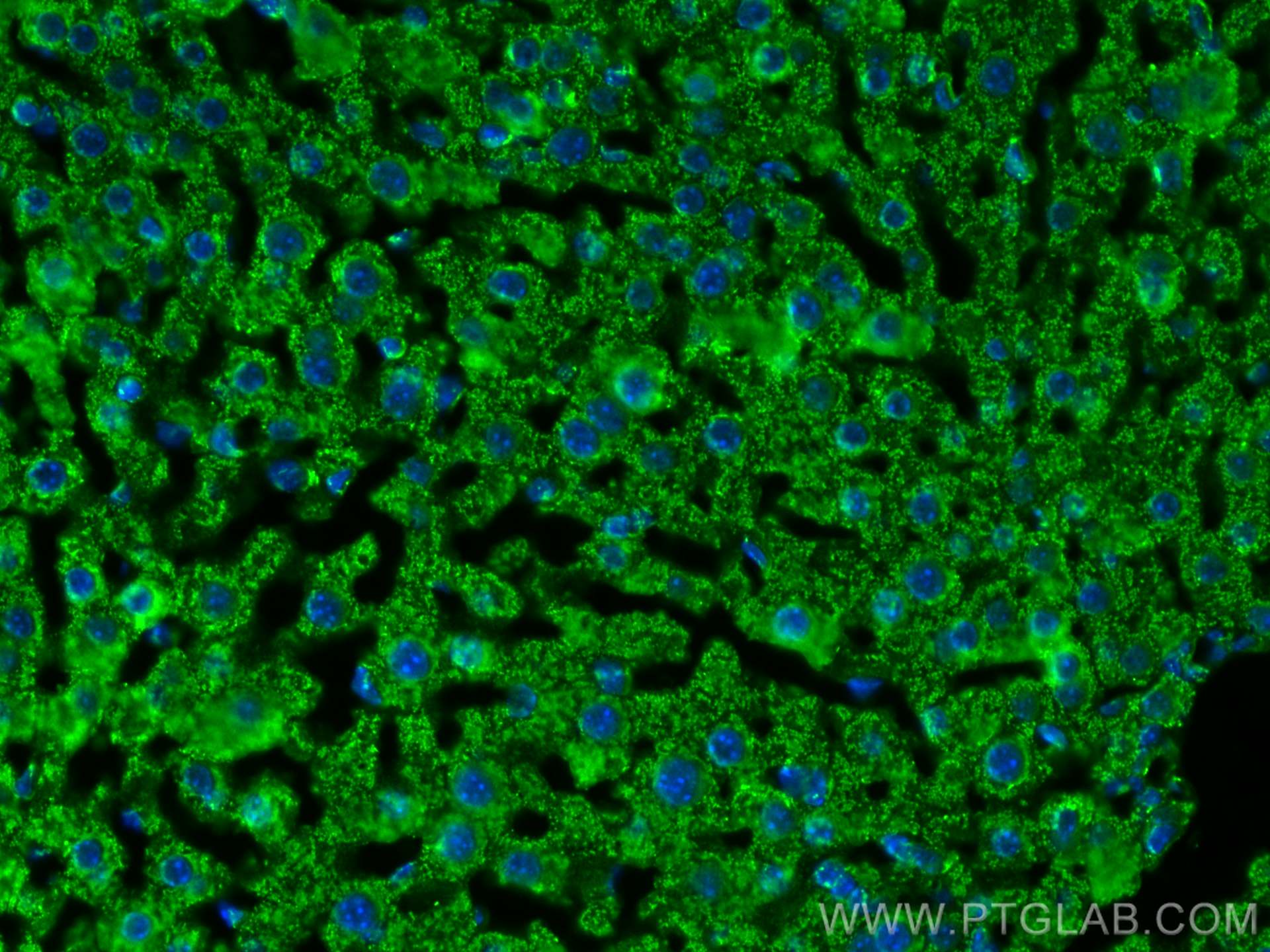Tested Applications
| Positive WB detected in | HeLa cells, HepG2 cells, L02 cells, HuH-7 cells, HSC-T6 cells, NIH/3T3 cells |
| Positive IHC detected in | human liver cancer tissue, human breast cancer tissue Note: suggested antigen retrieval with TE buffer pH 9.0; (*) Alternatively, antigen retrieval may be performed with citrate buffer pH 6.0 |
| Positive IF-P detected in | human liver cancer tissue, mouse liver tissue |
Recommended dilution
| Application | Dilution |
|---|---|
| Western Blot (WB) | WB : 1:5000-1:50000 |
| Immunohistochemistry (IHC) | IHC : 1:500-1:2000 |
| Immunofluorescence (IF)-P | IF-P : 1:200-1:800 |
| It is recommended that this reagent should be titrated in each testing system to obtain optimal results. | |
| Sample-dependent, Check data in validation data gallery. | |
Published Applications
| WB | See 3 publications below |
| IF | See 1 publications below |
Product Information
67026-1-Ig targets GLUD1 in WB, IHC, IF-P, ELISA applications and shows reactivity with human, mouse, rat samples.
| Tested Reactivity | human, mouse, rat |
| Cited Reactivity | human, mouse |
| Host / Isotype | Mouse / IgG2b |
| Class | Monoclonal |
| Type | Antibody |
| Immunogen |
CatNo: Ag6179 Product name: Recombinant human GLUD1 protein Source: e coli.-derived, PET28a Tag: 6*His Domain: 214-558 aa of BC040132 Sequence: FIGPGIDVPAPDMSTGEREMSWIADTYASTIGHYDINAHACVTGKPISQGGIHGRISATGRGVFHGIENFINEASYMSILGMTPGFGDKTFVVQGFGNVGLHSMRYLHRFGAKCIAVGESDGSIWNPDGIDPKELEDFKLQHGSILGFPKAKPYEGSILEADCDILIPAASEKQLTKSNAPRVKAKIIAEGANGPTTPEADKIFLERNIMVIPDLYLNAGGVTVSYFEWLKNLNHVSYGRLTFKYERDSNYHLLMSVQESLERKFGKHGGTIPIVPTAEFQDRISGASEKDIVHSGLAYTMERSARQIMRTAMKYNLGLDLRTAAYVNAIEKVFKVYNEAGVTFT Predict reactive species |
| Full Name | glutamate dehydrogenase 1 |
| Calculated Molecular Weight | 61 kDa |
| Observed Molecular Weight | 45-55 kDa |
| GenBank Accession Number | BC040132 |
| Gene Symbol | GLUD1 |
| Gene ID (NCBI) | 2746 |
| RRID | AB_2882341 |
| Conjugate | Unconjugated |
| Form | Liquid |
| Purification Method | Protein A purification |
| UNIPROT ID | P00367 |
| Storage Buffer | PBS with 0.02% sodium azide and 50% glycerol, pH 7.3. |
| Storage Conditions | Store at -20°C. Stable for one year after shipment. Aliquoting is unnecessary for -20oC storage. 20ul sizes contain 0.1% BSA. |
Background Information
Human glutamate dehydrogenase (GDH), an enzyme central to the metabolism of glutamate, is known to exist in housekeeping and nerve tissue-specific isoforms encoded by the GLUD1 and GLUD2 genes, respectively. It catalyses the reversible inter-conversion of glutamate to alpha-ketoglutarate and ammonia, thus interconnecting amino acid and carbohydrate metabolism. GLUD1 might contribute to the formation of specific synapses in the hippocampus such as those formed by the projecting neurons of the entorhinal cortex(PMID: 22138648). GLUD1 has a calculated molecular mass of 61 kDa and an apparent molecular mass of 45-55 kDa with the 53aa transit peptide removed.
Protocols
| Product Specific Protocols | |
|---|---|
| IF protocol for GLUD1 antibody 67026-1-Ig | Download protocol |
| IHC protocol for GLUD1 antibody 67026-1-Ig | Download protocol |
| WB protocol for GLUD1 antibody 67026-1-Ig | Download protocol |
| Standard Protocols | |
|---|---|
| Click here to view our Standard Protocols |
Publications
| Species | Application | Title |
|---|---|---|
Cell Insight Deacetylation of GLUD1 maintains the survival of lung adenocarcinoma cells under glucose starvation by inhibiting autophagic cell death | ||
Sci Transl Med Aberrant methylmalonylation underlies methylmalonic acidemia and is attenuated by an engineered sirtuin | ||
Inflammation Moxibustion Alleviates Inflammation via SIRT5-mediated Post-translational Modification and Macrophage Polarization |

